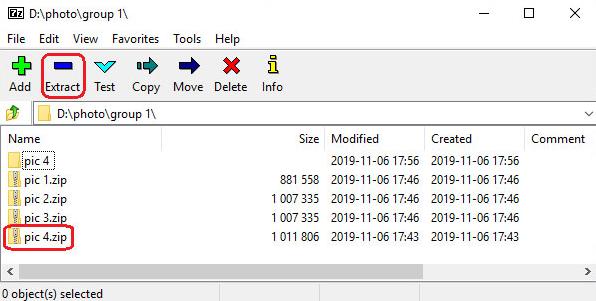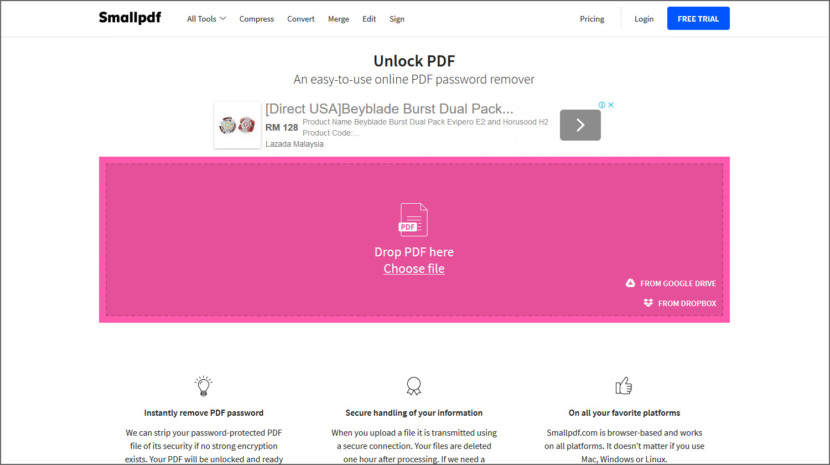If someone has your password, the first step is to change the password immediately. This will ensure that the unauthorized person no longer has access to your account. Additionally, it’s important to enable two-factor authentication to add an extra layer of security to your accounts. It’s also recommended to review your account activity and keep an eye out for any suspicious logins or activity. If you use the same password for other accounts, it’s best to change those passwords as well to prevent further unauthorized access. Lastly, it’s crucial to be cautious of phishing scams and avoid clicking on suspicious links or providing personal information to unknown sources.
Video Tutorial:What can happen if someone gets your password?
What are 4 things to do when you get hacked?
As a technical blogger, it’s important to know what actions to take when you discover that your system or device has been hacked. Here are 4 important things to do when you get hacked:
1. Disconnect from the internet: The first thing you should do when you discover that you’ve been hacked is to immediately disconnect from the internet. This will prevent the hacker from accessing any further information on your device and limit the damage that can be done.
2. Change your passwords: It’s important to change all of your passwords, especially the ones that may have been compromised. This includes your email, bank accounts, social media, and any other accounts where you store sensitive information.
3. Scan your device: Run a virus scan on your device to identify any malicious software that may have been installed. This will help you to remove any malware or viruses from your device and prevent any further damage.
4. Seek professional assistance: If you’re not sure how to handle the situation, it’s important to seek help from a professional. This could be a cybersecurity expert, your internet service provider, or a trusted IT professional who can assist you in identifying and resolving the issue.
How do hackers figure out your password?
Hackers use different methods to try to figure out a user’s password. The most common methods include brute force attacks, dictionary attacks, and phishing attacks.
Brute force attacks involve using automated software to guess all possible combinations of characters until the correct password is found. These attacks can take a long time, particularly if the password is complex and includes a mix of letters, numbers, and symbols.
Dictionary attacks involve using a precompiled list of common passwords, including those seen in previous data breaches, to try to guess a user’s password. This method is particularly effective if the user has chosen a weak, easily guessable password.
Phishing attacks involve tricking the user into revealing their password by presenting a fake login page or sending an email claiming to be from a legitimate service and asking for the user’s login credentials.
To prevent hackers from figuring out your password, it is important to choose a strong, unique password that includes a mix of letters, numbers, and symbols and to enable two-factor authentication. It is also important to be wary of suspicious emails or login pages and to avoid using the same password for multiple accounts as this can increase the risk of a hacker gaining access to multiple accounts.
What do hackers do with stolen passwords?
Hackers can use stolen passwords for various malicious purposes, such as gaining unauthorized access to sensitive information, stealing money or property, or spreading malware and viruses. Passwords are often the first line of defense against cybersecurity threats, and once a hacker obtains a password, they can exploit it to compromise an individual’s or an organization’s entire online presence. Hackers can use stolen credentials to log into email accounts, bank accounts, social media accounts, and other services, making it easy for them to steal personal data, financial information, and other sensitive data. Therefore, individuals and organizations should always take steps to safeguard their passwords and regularly monitor their accounts for signs of unauthorized activity. Two-factor authentication and strong, unique passwords are recommended to prevent unauthorized access and ensure the safety of your online presence.
What is the first thing you do when you get hacked?
As a technical blogger, the first thing you should do when you get hacked is to limit the damage by disconnecting from the internet or any network the compromised device is connected to. This will prevent hackers from further accessing your confidential data and prevent them from causing more harm. Secondly, it is essential to change all your account passwords and reinstall the operating system or software which has been compromised. Promptly reporting the breach to authorities or your IT department is an essential step to minimize the damage and prevent further attacks. Finally, it is advisable to check for any suspicious activity and monitor your accounts regularly to prevent any future attacks.
Should I be worried about compromised passwords?
As a technical blogger, it’s essential to understand the risks of compromised passwords and take the necessary precautions to keep your online accounts safe. Cybercriminals have many tactics for gaining access to your passwords and using them for malicious purposes, such as theft or identity fraud.
To avoid those risks, you should use strong, unique passwords for each of your online accounts and change them regularly. To manage your passwords safely, you can use a reputable password manager that encrypts your data and offers two-factor authentication for added security. It’s always best to enable two-factor authentication for your sensitive accounts like email, banking, and social media.
Moreover, regularly check if your accounts have been part of data breaches by using a breach-checking tool. And lastly, be skeptical of phishing schemes, spammy emails, text messages, or unknown links that request you to provide your login details. Always visit authenticated sites, apply security patches, use strong passwords, and stay updated with the latest cybersecurity news and trends.
{“@context”:”https://schema.org”,”@type”:”FAQPage”,”mainEntity”:[{“@type”:”Question”,”name”:”What are 4 things to do when you get hacked?”,”acceptedAnswer”:{“@type”:”Answer”,”text”:”As a technical blogger, it’s important to know what actions to take when you discover that your system or device has been hacked. Here are 4 important things to do when you get hacked:nn1. Disconnect from the internet: The first thing you should do when you discover that you’ve been hacked is to immediately disconnect from the internet. This will prevent the hacker from accessing any further information on your device and limit the damage that can be done.nn2. Change your passwords: It’s important to change all of your passwords, especially the ones that may have been compromised. This includes your email, bank accounts, social media, and any other accounts where you store sensitive information.nn3. Scan your device: Run a virus scan on your device to identify any malicious software that may have been installed. This will help you to remove any malware or viruses from your device and prevent any further damage.nn4. Seek professional assistance: If you’re not sure how to handle the situation, it’s important to seek help from a professional. This could be a cybersecurity expert, your internet service provider, or a trusted IT professional who can assist you in identifying and resolving the issue.”}},{“@type”:”Question”,”name”:”How do hackers figure out your password?”,”acceptedAnswer”:{“@type”:”Answer”,”text”:”Hackers use different methods to try to figure out a user’s password. The most common methods include brute force attacks, dictionary attacks, and phishing attacks. nnBrute force attacks involve using automated software to guess all possible combinations of characters until the correct password is found. These attacks can take a long time, particularly if the password is complex and includes a mix of letters, numbers, and symbols. nnDictionary attacks involve using a precompiled list of common passwords, including those seen in previous data breaches, to try to guess a user’s password. This method is particularly effective if the user has chosen a weak, easily guessable password.nnPhishing attacks involve tricking the user into revealing their password by presenting a fake login page or sending an email claiming to be from a legitimate service and asking for the user’s login credentials.nnTo prevent hackers from figuring out your password, it is important to choose a strong, unique password that includes a mix of letters, numbers, and symbols and to enable two-factor authentication. It is also important to be wary of suspicious emails or login pages and to avoid using the same password for multiple accounts as this can increase the risk of a hacker gaining access to multiple accounts.”}},{“@type”:”Question”,”name”:”What do hackers do with stolen passwords?”,”acceptedAnswer”:{“@type”:”Answer”,”text”:”Hackers can use stolen passwords for various malicious purposes, such as gaining unauthorized access to sensitive information, stealing money or property, or spreading malware and viruses. Passwords are often the first line of defense against cybersecurity threats, and once a hacker obtains a password, they can exploit it to compromise an individual’s or an organization’s entire online presence. Hackers can use stolen credentials to log into email accounts, bank accounts, social media accounts, and other services, making it easy for them to steal personal data, financial information, and other sensitive data. Therefore, individuals and organizations should always take steps to safeguard their passwords and regularly monitor their accounts for signs of unauthorized activity. Two-factor authentication and strong, unique passwords are recommended to prevent unauthorized access and ensure the safety of your online presence.”}},{“@type”:”Question”,”name”:”What is the first thing you do when you get hacked?”,”acceptedAnswer”:{“@type”:”Answer”,”text”:”As a technical blogger, the first thing you should do when you get hacked is to limit the damage by disconnecting from the internet or any network the compromised device is connected to. This will prevent hackers from further accessing your confidential data and prevent them from causing more harm. Secondly, it is essential to change all your account passwords and reinstall the operating system or software which has been compromised. Promptly reporting the breach to authorities or your IT department is an essential step to minimize the damage and prevent further attacks. Finally, it is advisable to check for any suspicious activity and monitor your accounts regularly to prevent any future attacks.”}},{“@type”:”Question”,”name”:”Should I be worried about compromised passwords?”,”acceptedAnswer”:{“@type”:”Answer”,”text”:”As a technical blogger, it’s essential to understand the risks of compromised passwords and take the necessary precautions to keep your online accounts safe. Cybercriminals have many tactics for gaining access to your passwords and using them for malicious purposes, such as theft or identity fraud.nnTo avoid those risks, you should use strong, unique passwords for each of your online accounts and change them regularly. To manage your passwords safely, you can use a reputable password manager that encrypts your data and offers two-factor authentication for added security. It’s always best to enable two-factor authentication for your sensitive accounts like email, banking, and social media.nnMoreover, regularly check if your accounts have been part of data breaches by using a breach-checking tool. And lastly, be skeptical of phishing schemes, spammy emails, text messages, or unknown links that request you to provide your login details. Always visit authenticated sites, apply security patches, use strong passwords, and stay updated with the latest cybersecurity news and trends.”}}]}





